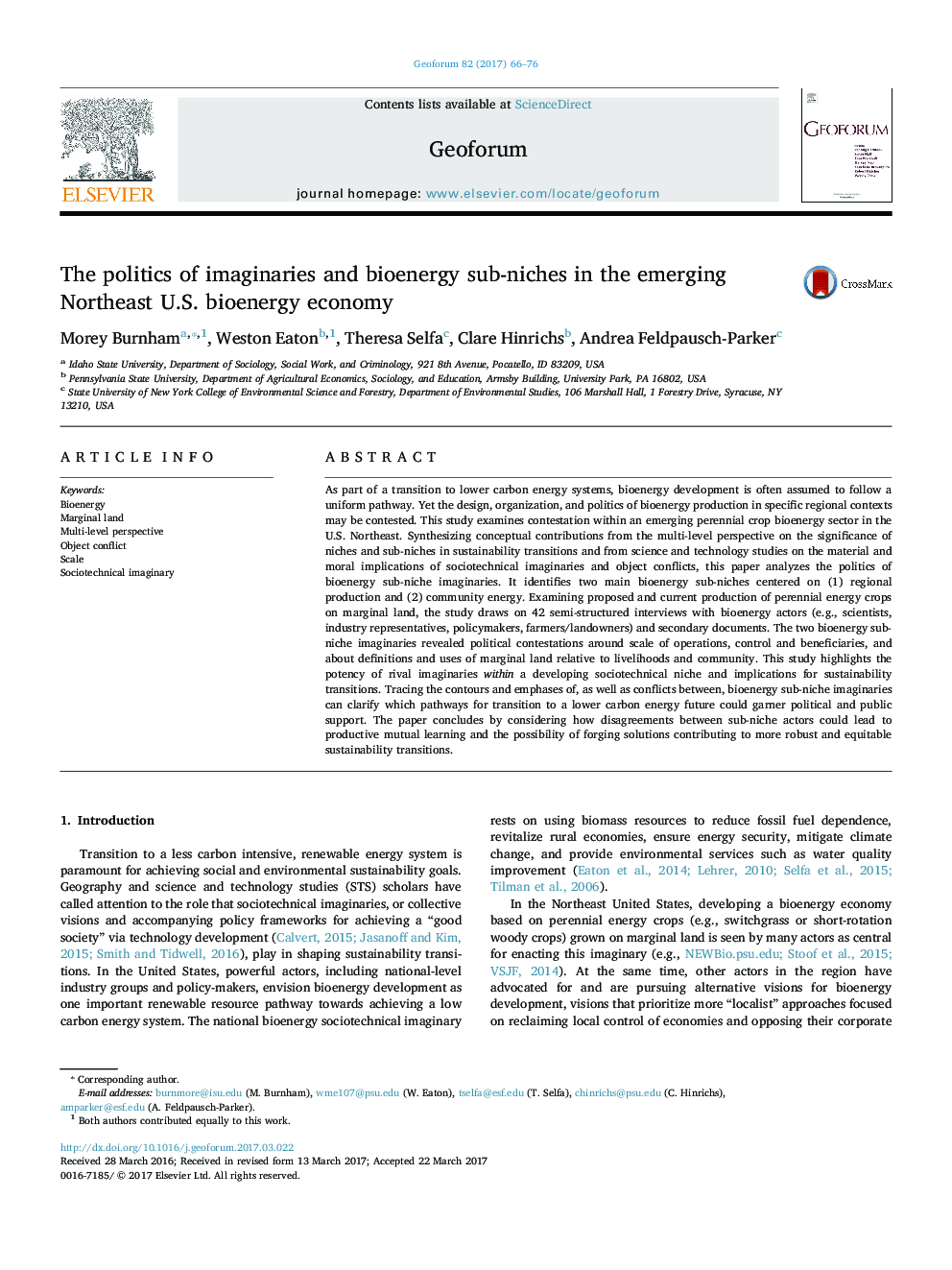| Article ID | Journal | Published Year | Pages | File Type |
|---|---|---|---|---|
| 5073320 | Geoforum | 2017 | 11 Pages |
Abstract
As part of a transition to lower carbon energy systems, bioenergy development is often assumed to follow a uniform pathway. Yet the design, organization, and politics of bioenergy production in specific regional contexts may be contested. This study examines contestation within an emerging perennial crop bioenergy sector in the U.S. Northeast. Synthesizing conceptual contributions from the multi-level perspective on the significance of niches and sub-niches in sustainability transitions and from science and technology studies on the material and moral implications of sociotechnical imaginaries and object conflicts, this paper analyzes the politics of bioenergy sub-niche imaginaries. It identifies two main bioenergy sub-niches centered on (1) regional production and (2) community energy. Examining proposed and current production of perennial energy crops on marginal land, the study draws on 42 semi-structured interviews with bioenergy actors (e.g., scientists, industry representatives, policymakers, farmers/landowners) and secondary documents. The two bioenergy sub-niche imaginaries revealed political contestations around scale of operations, control and beneficiaries, and about definitions and uses of marginal land relative to livelihoods and community. This study highlights the potency of rival imaginaries within a developing sociotechnical niche and implications for sustainability transitions. Tracing the contours and emphases of, as well as conflicts between, bioenergy sub-niche imaginaries can clarify which pathways for transition to a lower carbon energy future could garner political and public support. The paper concludes by considering how disagreements between sub-niche actors could lead to productive mutual learning and the possibility of forging solutions contributing to more robust and equitable sustainability transitions.
Related Topics
Social Sciences and Humanities
Economics, Econometrics and Finance
Economics and Econometrics
Authors
Morey Burnham, Weston Eaton, Theresa Selfa, Clare Hinrichs, Andrea Feldpausch-Parker,
